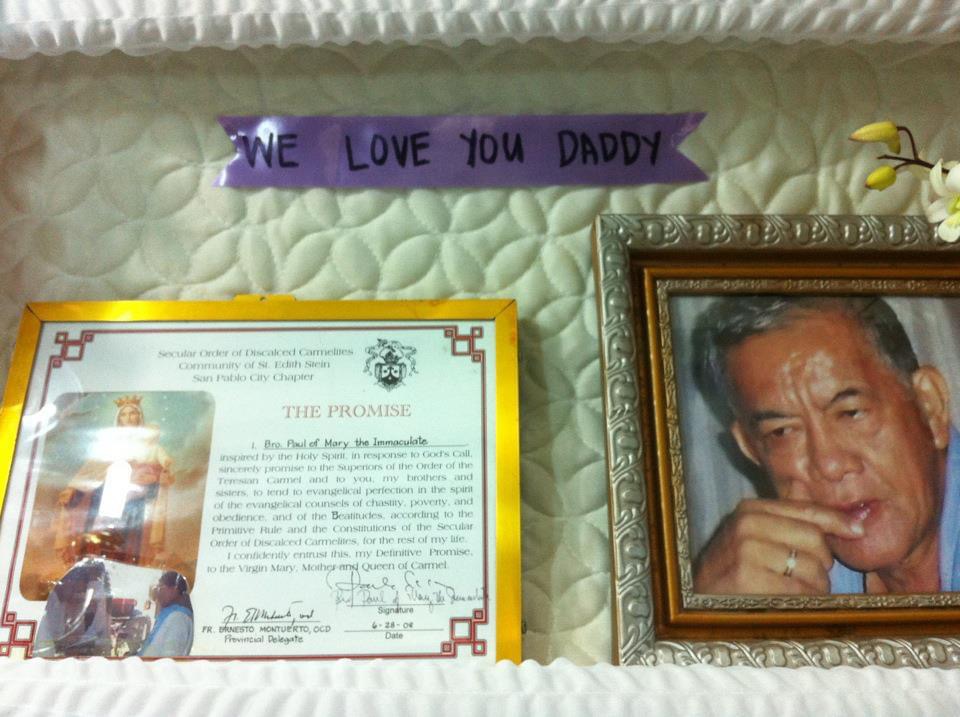
Seventeen years have passed since I last sat across from my father, a quiet afternoon in the Philippines, my shop bustling just outside. He had come to visit, as he often did, not only to see me but to indulge in what had become a cherished ritual: a reflection brainstorming session. This wasn’t a simple catch-up; it was a sacred exchange. He would listen deeply, absorbing my thoughts and questions, his face softening as he flipped through my journals, sometimes chuckling at my musings, sometimes pausing, lost in his own reveries. My father was my reflection partner, my philosophical guide. His presence made life feel less like a mystery and more like a shared journey.

After he passed, something essential faded with him. Reflection became harder, and I slowly lost interest in this practice that had once brought such profound meaning. I stopped writing, stopped asking myself those deeper questions that had once been our shared pastime. Without my father’s gentle guidance, the path forward seemed uncertain. Yet recently, an old yearning resurfaced—a desire to reignite the practice he and I once shared. I made a quiet promise to myself: I would return to the habits I once held dear, to reflect and contemplate as he had taught me. Even in his absence, I would seek him in my thoughts, in the pages of my journal, in the quiet pauses of my day.

Now, I take moments for reflection two or three times a day, pen in hand, as I sift through the day’s experiences, searching for meaning, for insight. Today, it dawned on me with fresh clarity: my journey, with its highs and lows, its quiet moments and stormy seasons, is uniquely my own. It may not look perfect; it’s not always steady, nor is it always easy. But it is mine. Designed, perhaps, by forces unseen, or perhaps by my own decisions, this journey has been woven with threads of challenges, growth, love, and self-discovery. And somehow, I can feel my father’s presence in these moments of reflection, as if he’s sitting beside me once more.

The Journey of Life: A Philosophical Exploration
Each life is a journey, a unique tapestry woven with the threads of every choice, every experience, and every inner revelation. The ancient philosophers taught that to live a fulfilled life, one must engage in continuous self-reflection, a practice not merely of thinking but of becoming. Socrates famously said, “The unexamined life is not worth living.” Yet, in a world full of distractions and external demands, genuine self-reflection has become an almost lost art. Reconnecting with this practice, as I have, feels like both a return to my roots and a homecoming to my true self.
This journey of mine, with its exhilarating highs and deep valleys, echoes the idea of the “hero’s journey” as articulated by Joseph Campbell. In every person’s life, Campbell believed, there exists a call to adventure—a moment where one chooses to embark on a path toward self-discovery and transformation. My call came with the reawakening of my father’s teachings, the memory of our conversations calling me back to a life lived more fully, more intentionally. Each day, as I write, I confront the trials and the treasures within my life’s journey. And in doing so, I am continually transformed.
To reflect on life is, in a sense, to transcend the immediate and connect with something larger. Philosophers like Søren Kierkegaard believed that life is understood backward but must be lived forward. My journey, full of ups and downs, becomes clearer in retrospect, as if each experience leaves a breadcrumb for me to trace back and rediscover the lessons embedded in it. And while some experiences may seem painful or confusing, they are each integral parts of a larger design. Kierkegaard believed that these moments of “either/or” define us—where every choice becomes a step along a path uniquely ours, a journey that we alone must tread.

This journey is not just about reaching a destination but about engaging deeply with each experience, every success, and setback. Aristotle’s concept of eudaimonia—flourishing or the “good life”—emphasizes that true fulfillment comes not from external achievements but from the cultivation of inner virtues. As I reflect daily, I recognize that my worth is not in reaching a state of perfection but in striving, learning, and growing through life’s inevitable imperfections.
The practice of reflection has become, for me, both a way of reconnecting with my father and a method of building resilience. Viktor Frankl, the renowned psychologist and Holocaust survivor, spoke of “tragic optimism”—the ability to find meaning even amidst suffering. I realize that, like Frankl, I have the power to transform my struggles into sources of strength. Frankl’s philosophy reminds me that I am not defined by life’s hardships but by my response to them. Reflection allows me to reclaim my story, to see even the painful chapters as essential to my growth.
Through this journey of reflection, I am reminded of the ancient Stoics who taught that true freedom is found within. Marcus Aurelius, the Stoic philosopher-emperor, wrote, “You have power over your mind—not outside events. Realize this, and you will find strength.” Life’s unpredictability is inevitable, but by cultivating resilience and perspective through self-reflection, I find a grounding force that anchors me amidst life’s storms. This journey is mine to shape, and while I cannot control every event, I can choose how to respond.

A Unique Path, A Timeless Truth
In reconnecting with my past, with my father’s memory, and with this practice of reflection, I have rediscovered a truth that runs through the wisdom of ages: that life’s meaning is not found in certainty or security, but in the courage to journey through the unknown. My journey is my own—a narrative uniquely shaped by every joy, every sorrow, and every reflection that has woven its way into my soul.
My father’s legacy lives on in these moments of contemplation, as his spirit guides me to become not only the person he hoped I would be but also someone I am proud to be. I see now that the life designed for me, with all its complexity, is a gift. And each day, as I write and reflect, I embrace this journey, grateful for its uniqueness, its unpredictability, and its endless potential for growth.
This journey is a reminder of the timeless dance between the self and the universe, a journey where every step is part of a grander design, one that, perhaps, was meant only for me.





